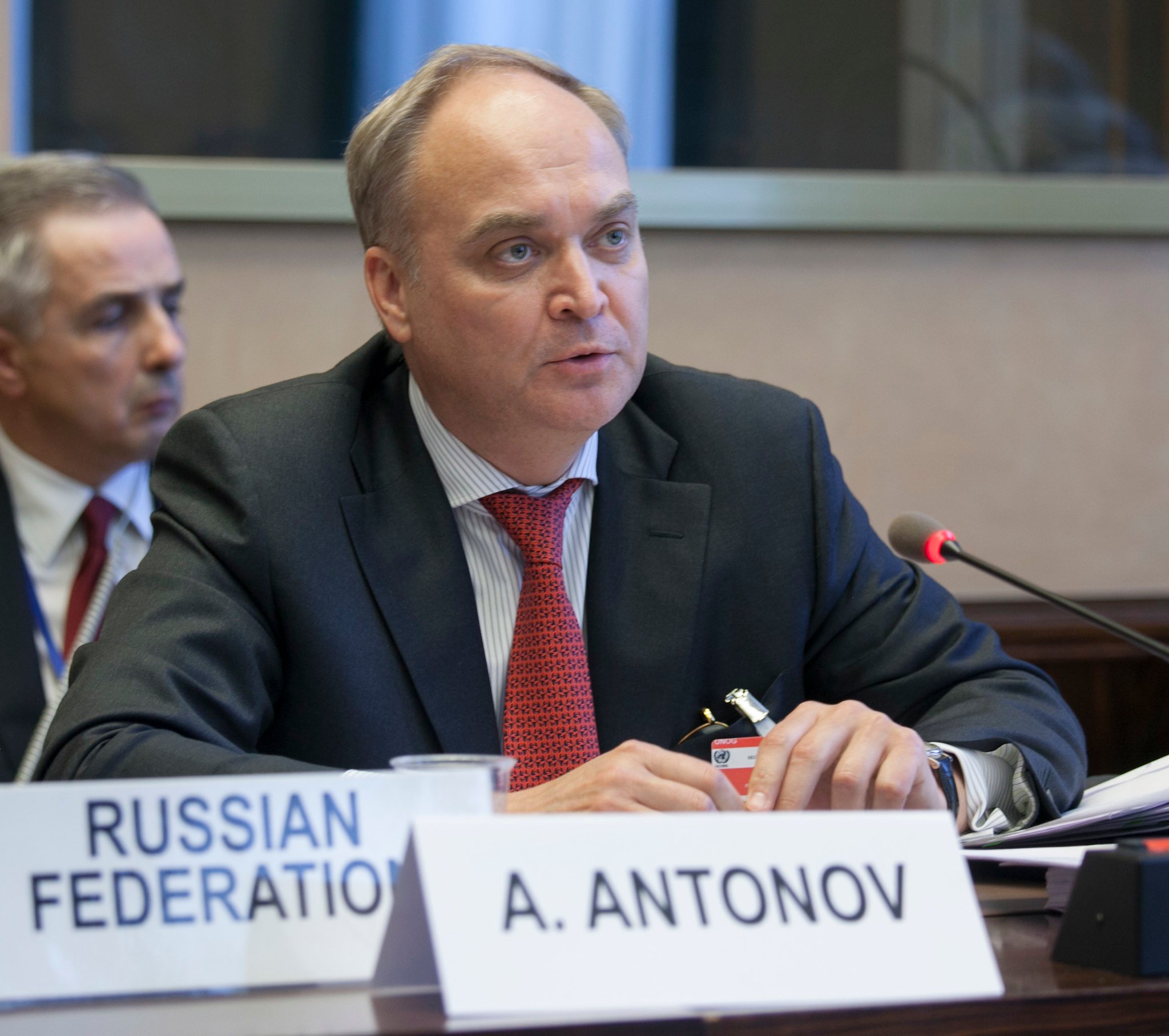Anatoly Antonov went back to work in DC Sunday as Russia’s ambassador to the US. Here are some things to know about the diplomat:
1. He left after President Biden agreed Antonov’s boss is a “killer.”
Russia recalled Antonov in March after Biden, in an interview, agreed with George Stephanopoulos, who asked him, “So you know Vladimir Putin—you think he’s a killer?” US Ambassador John Sullivan eventually left Russia the next month after Moscow “advised” he return to the US. During a meeting last week, Biden and Putin agreed both their countries’ ambassadors would return to their posts. Antonov was described in many news reports as a hardliner toward the US when he was appointed in 2017 as well as a challenging coworker: “Not many colleagues like to work with him because he’s a very demanding boss and a very demanding person,” Carnegie Moscow Center senior fellow Alexander Gabuev told NPR.
2. He took his time acknowledging Biden won the election.
Angela Stent asked Antonov when Putin would “acknowledge that Joe Biden is going to be the next president of the United States” during a webinar interview at the Brookings Institution last December.
He replied:
You’ll see that I can just only smile to this question. I hope that you understand that how I have to be cautious on this issue. First, I am not working in Kremlin. You’ll see that I am not in close contact with Mr. Putin. But, of course, I am aware of the position of Russian Federation on this issue. We can see that it’s American people decides itself who will run this country and we will recognize any choice that your people makes.
And as I understand that we need to wait some legal procedures in your country when all official results will be announced. And it goes without saying that after this moment or this event, you’ll see that everything will be done in according with protocol, state protocol.
Putin allowed that Biden won the election in mid-December.
3. He was radioactive in official Washington when he first took the job.
Antonov received a “cold reception on Capitol Hill” when he arrived in Washington in late 2017, Politico reported in early 2018. Associations with Antonov’s predecessor, Sergey Kislyak, provided unending heartburn for many Republicans in the early years of the Trump administration. “The Congress, overwhelmed by Russophobia, is led by politically biased emotions, rather than a clear-thinking mind,” Antonov told Politico reporter Nahal Toosi.
4. The EU sanctioned him over Ukraine.
Antonov was Russia’s deputy minister of defense before he landed his current job, and it was in that role that the European Union sanctioned him over Russia’s involvement in Ukraine. It renewed the sanctions in 2017.
5. He may not love the weather here.
The US and Russia’s embassy in Washington have trolled each other a bit in recent years—the feds and the DC Council agreed in 2018 to rename the street outside the embassy Boris Nemtsov Plaza, after a Putin critic who was assassinated in 2015, while Russia’s US embassy has taken shots at the US on Twitter about the US Space Force, the conviction of Russian agent Maria Butina, and which US consulate it should close. While relations between countries wax and wane, though, the weather is beyond anyone’s control. Antonov grew up in Siberia, whose dry climate he contrasted with the humidity in Moscow and Washington during a visit to Alaska in 2019.
















